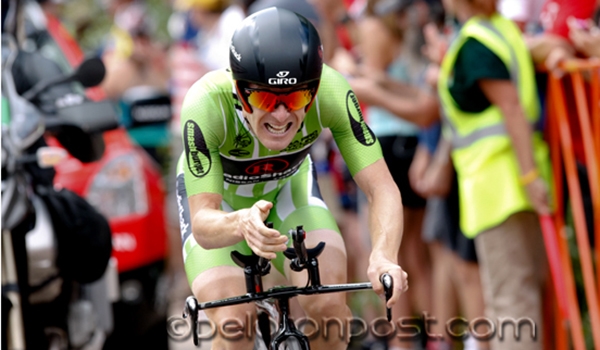
American cyclist Levi Leipheimer, 38, raced on the U.S. Postal Service, Astana and RadioShack cycling teams with Lance Armstrong between 2000 and 2011. He finished third in the Tour de France in 2007 and won a bronze medal in the 2008 Beijing Olympics. On Wednesday, the U.S. Anti-Doping Agency released the evidence it had collected in bringing charges against Armstrong and five others, who it said conspired to run a systematic doping program. The evidence named Leipheimer as one of the cyclists who testified in the probe. Leipheimer, who has never commented on the issue, discusses it here for the first time.Today, I accept responsibility and USADA’s sanctions for participating in the dirty past of cycling. I’ve been racing clean for more than 5 years in a changed and much cleaner sport. I hope that my admission will help to make these changes permanent.
Until recently—or maybe even until today—when people thought about doping, they thought about a guy, by himself, using banned substances to get ahead. What people didn’t realize—what I didn’t realize until after I was already committed to this career—was that doping was organized and everywhere in the peloton. Doping wasn’t the exception, it was the norm.
When I was a 13-year-old kid, my dream was to ride the Tour de France. I fully devoted my life to that goal. I left home as a teenager, passed on a college degree, moved to Europe at 19 and lived in hostels with roommates who didn’t speak my language.Having made sacrifices for my dream, several years after I turned pro, I came to see cycling for what it was: a sport where some team managers and doctors coordinated and facilitated the use of banned substances and methods by their riders. A sport where the athletes at the highest level—perhaps without exception—used banned substances. A sport where doping was so accepted that riders from different teams—who were competitors on the road—coordinated their doping to keep up with other riders doing the same thing.
I regret that this was the state of affairs in the sport that we love and I chose as my career. I am sorry that I was forced to make the decisions I made. I admit that I didn’t let doping deter me from my dream. I admit that I used banned substances.
I know that learning this will disappoint many of my fans and friends and I am sorry that the sport and I have let you down.
Right or wrong, in my mind the choice was “do it or go home.” For me that was not a choice.People will be disappointed and say I was wrong, that I should have chosen differently, and am just making excuses. I made the decision I made. I don’t offer this description of the sport as an excuse, simply as an explanation of the context and reason for my decision. I won’t lie about it—I have to own it—I accept responsibility for my decision.
I could have come forward sooner. But would that have accomplished anything—other than to end my career? One rider coming forward and telling his story in the face of cycling’s code of silence would not have fixed a problem that was institutional.
When USADA came to me and described a solution—where my admission could be part of a bigger plan that would make the positive changes we’ve seen in recent years permanent—I said “I need to be involved.” I don’t want today’s 13 year olds to be discouraged by their parents from dreaming about one day riding the Tour de France.
Thanks to better testing and a shift in the culture of the sport, cycling has been much cleaner for a number of years. The new generation of riders is not faced with the decisions we were. By taking responsibility for what we have done, my generation will make sure it stays that way.




